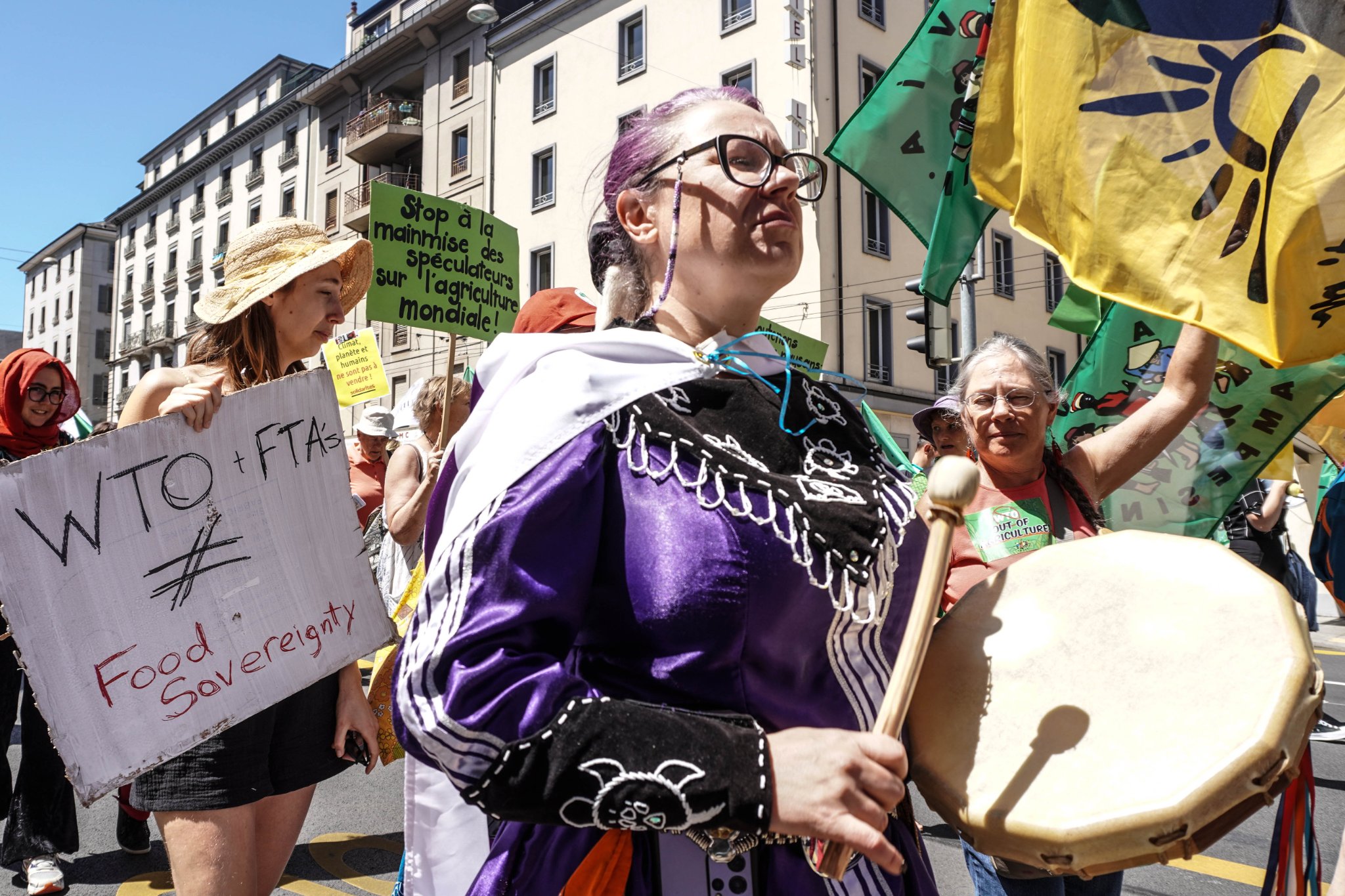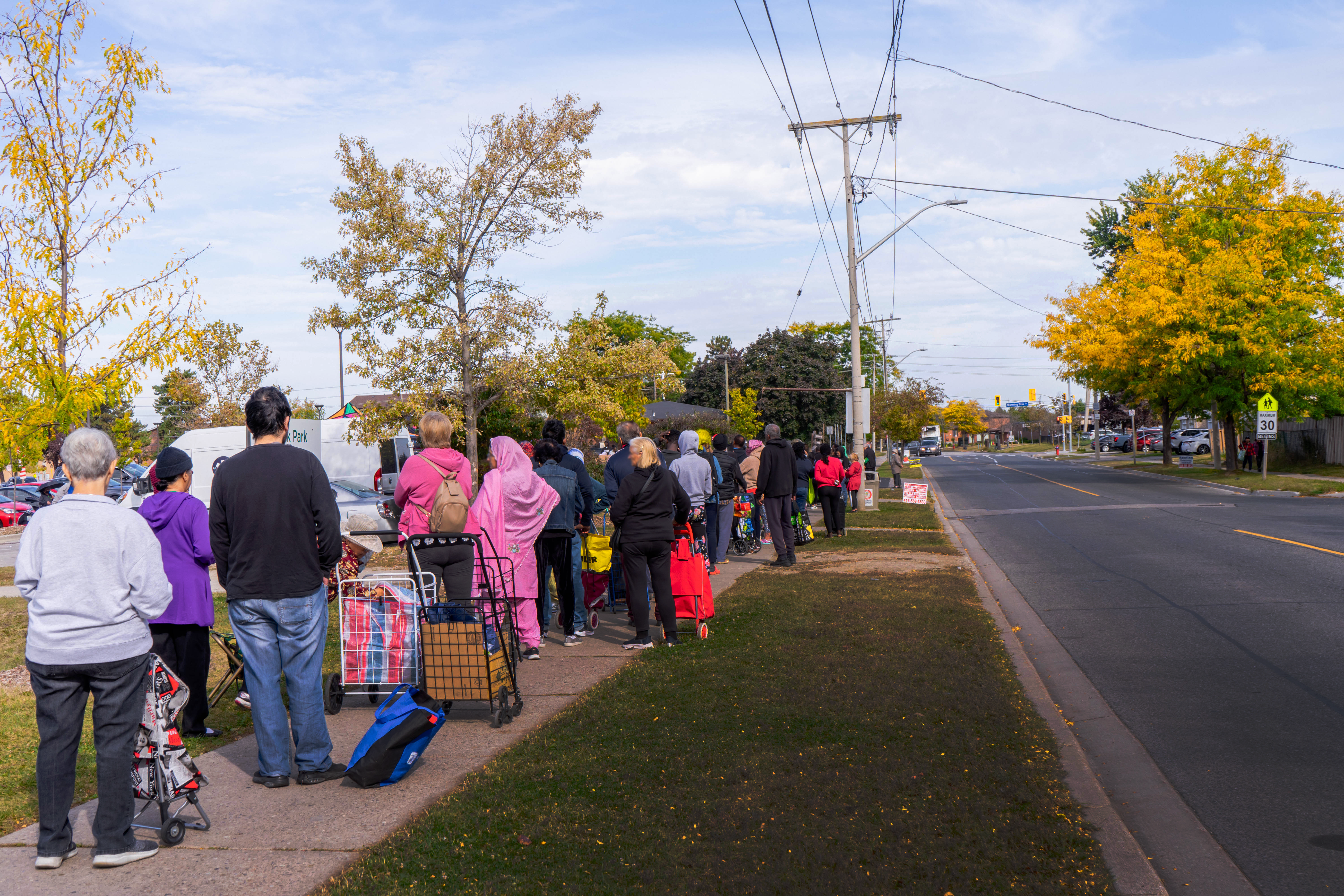Today we observe the International Day of the World’s Indigenous People!
This year’s theme is The Role of Indigenous Women in the Preservation and Transmission of Traditional Knowledge.
To celebrate, we are highlighting Celeste Smith, whose work focuses on food security and food sovereignty. Celeste is the Co-Chair of the Peel Food Action Council and we spoke with her about how her experience and identity as an Indigenous woman enriches her work and her community:
Please introduce yourself and tell us a bit about what you do.
My name is Celeste Smith, I am from the Oneida Nation (Six Nations Territory). I am a Traditional Agriculturalist, Teacher, and Global Food Justice Advocate. I am the Co-Chair of the Peel Food Action Council (PFAC), which was established in 2019 to bring together stakeholders from across Peel’s food system to work collectively toward a just, sustainable and secure food system in the Peel Region.
The theme of this year’s International Day of the World’s Indigenous Peoples is “The Role of Indigenous Women in the Preservation and Transmission of Traditional Knowledge”. Can you speak to that theme a bit and share why it’s important?
Indigenous women hold the land. They hold the seeds and keep the traditional ecological knowledge for our cultures. Traditional farming is regenerative agriculture and builds soil and, therefore, climate resilience. In Canada, less than 10% of women farm, but worldwide, women, especially Indigenous women, are the majority of farmers, so it is very important we support women in continuing our traditional practices. Projects like “Ga Gitigemi Gamik – We Will Plant Lodge” support Indigenous Women to relearn our Traditional Ecological Knowledge essential to this.
Tell us about Cultural Seeds and We Will Plant Lodge.
Cultural seeds is an Indigenous Woman-owned business that is rooted in Traditional Ecological Knowledge. We specialize in Indigenous heritage and rare plants from Turtle Island and sell and trade seeds. We offer consulting services to Indigenous Organizations and Nations in support of food sovereignty and food justice. All the proceeds from every sale go to our sister project, Ga Gitigemi Gamik – We Will Plant Lodge.
How does it feel like to know that you are helping to create positive change in the community?
It is truly my life’s work. It is my gift and therefore my responsibility to share with my community. I was just in Geneva with La Via Campesina representing the National Farmers Union, and I joined other Indigenous women fighting for food sovereignty and justice.
What do you think contributes to food insecurity in Indigenous communities in Canada?
It is a complex problem but I believe the root issue is Colonialism – which lead to lack of access to land and erasure of traditional knowledge. Our food systems were displaced and now we are trying to build them up again.
Why do you think it is important for Indigenous people, particularly women, to be in leadership positions?
Representation matters! In most of our cultures, its the women who are the keepers of the land and the food. We need to remember who we are, and reclaim that place – which will in turn heal our communities.
How can non-Indigenous people be better allies/advocates to Indigenous communities facing food insecurity?
Support Indigenous economic reconciliation! Read Indigenous authors, support Indigenous initiatives and understand what “Land Back” means, which is sharing and supporting one another.
Celeste, thank you for sharing your knowledge with us and for everything you do for your community!
Visit Cultural Seeds and We Will Plant Lodge to learn more.
Photo provided by Celeste Smith.



